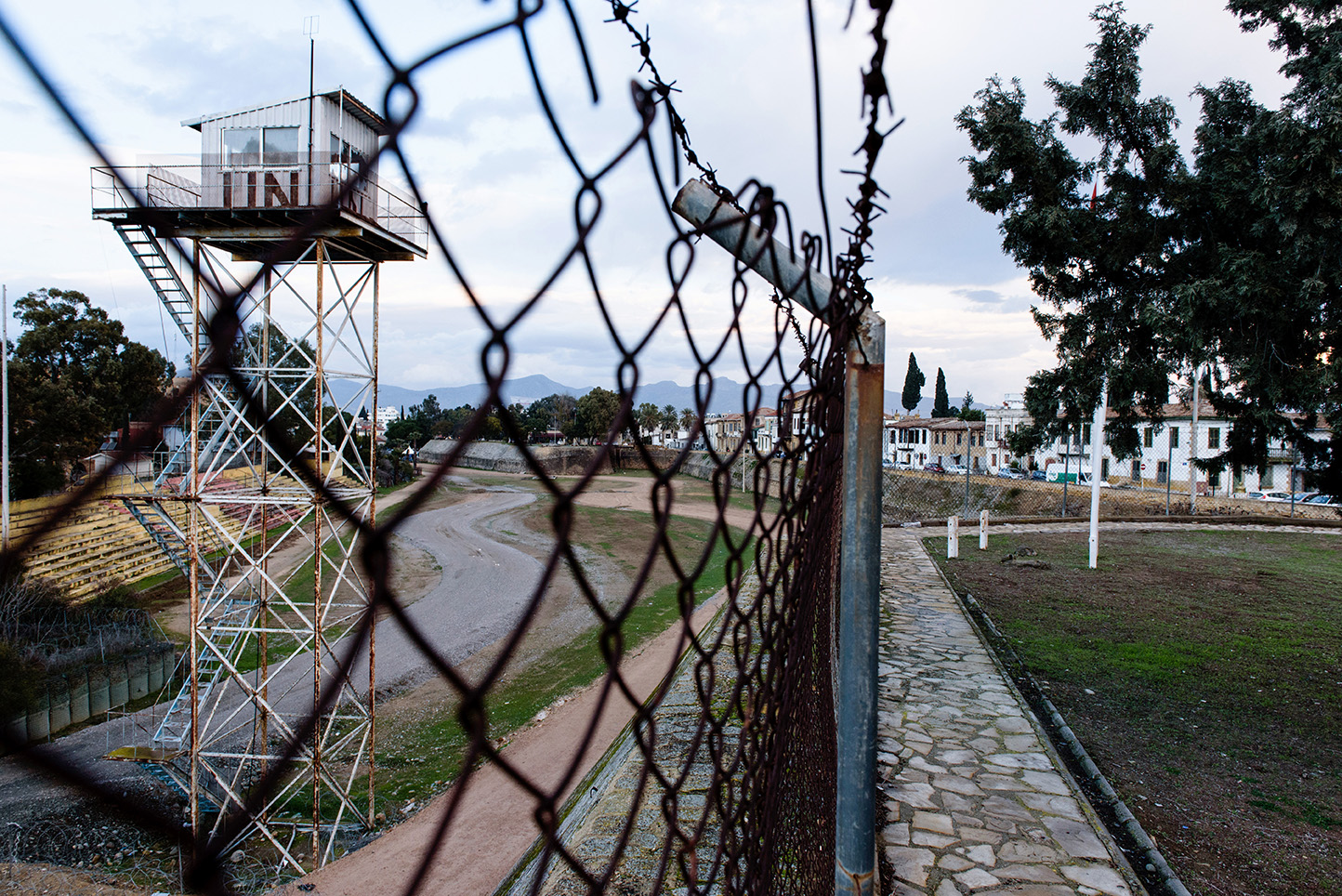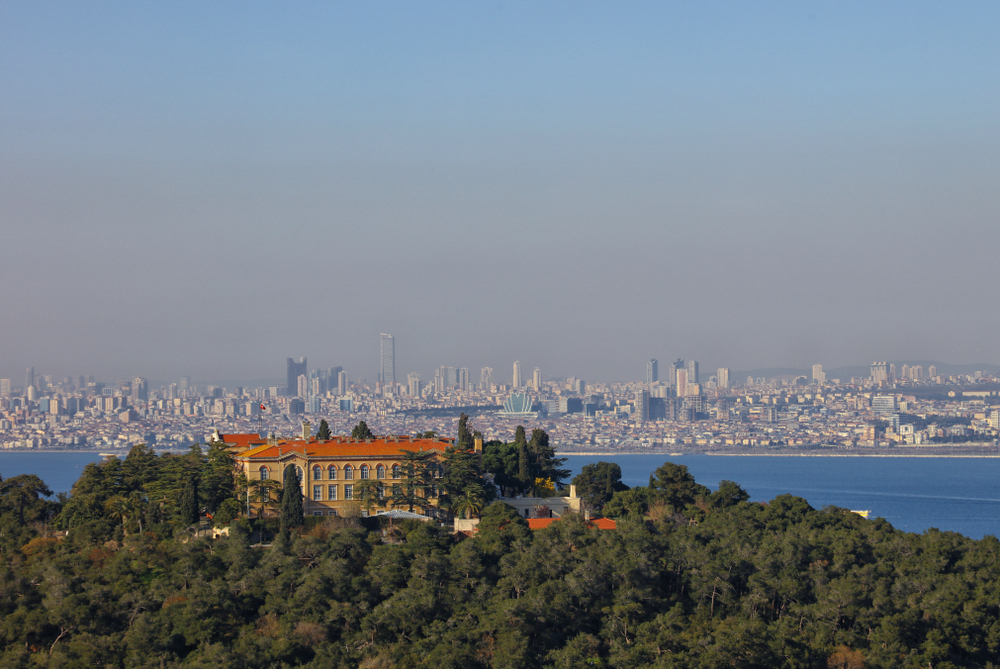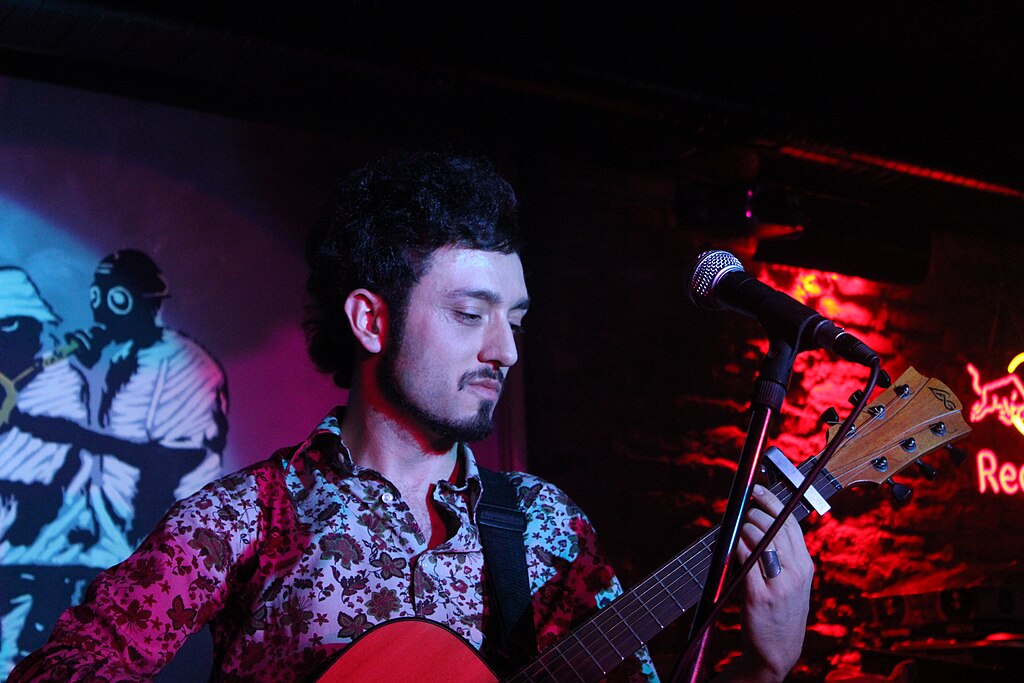Media Censorship in Kosovo at the Behest of Big Business
With media outlets in Kosovo and the region increasingly concentrated in the hands of major business moguls, journalists say censorship to protect the owners’ interests has become ‘the norm’.

La-censura-dei-media-in-Kosovo-al-servizio-delle-grandi-aziende-1
© Shutterstock
A six-month investigation, involving over thirty sources, most of whom requested to remain anonymous due to consequences they fear they may face. This journalistic piece reveals that with the expansion of the media market in Kosovo, large businesses are increasingly taking control of journalistic work.
The Devolli brothers, Blerim and Shkelqim, own a large corporation called “Devolli Group”, which includes, among others, breweries, flour mills, coffee factories, mattress factories, and restaurant chains, most of which are in Kosovo, but also in Albania, North Macedonia, and Montenegro. In parallel, they own a cable operator, a radio station, and a TV station. Such interests inevitably overlap.
“We were not allowed to report on things that affected the interests or image of the owners’ businesses,” says a journalist who works at Klan Kosova. A concrete example was on March 2, 2024, when the US embargoed Kosovo due to mattresses from the company Comodita Home. “We did not report the reason for the embargo. Later, there were only reports on why the government does not protect businesses," says this journalist, requesting to remain anonymous.
The US embargoed Kosovo alongside dozens of countries because the imported mattresses were sold in the United States at less than fair value.
Another editor at Klan Kosova, who agreed to talk anonymously, confirms that often, reporting that could harm corporate interests is avoided. “It’s structured to protect the company’s business,” adds this news editor.
A former employee of Klan Kosova echoed these concerns. “We couldn’t do our work professionally without clashing with business. Owners were interested in pushing an agenda for political influence,” says this source.
The editorial team advised the owners not to use TV as a means of fighting with the government, says this source, adding that this approach made the journalists a target for external attacks. “Journalists have sometimes been the target of verbal attacks not only from public officials or politicians but also from ordinary people,” says this source.
Such tensions burst into the public domain in 2023 when Kosovo’s Ministry of Industry and Trade moved to suspend the business certificate of major private broadcaster Klan Kosova, owned by Shkelqim Devolli, the head of the country’s largest business conglomerate, the Devolli Group.
The ministry appeared to base its decision on a media report claiming that Klan Kosova had registered its business address as ‘Peja-Serbia’ and ‘Gjakova-Serbia’, which the ministry argued was a “violation of the basic principles of the Constitution of the Republic of Kosovo”, as both towns are located in Kosovo.
Critics called the move a violation of media freedom. The EFJ and other international journalism associations at the time said such a complaint “cannot be used to justify the closure of one of the country’s largest private national broadcasters”.
On the other hand, Devolli was also not averse to putting pressure on his journalists and, in response to the government’s decision, had “insisted on critical coverage of the prime minister”, Albin Kurti says, this former employee at Klan Kosova. "It was a kind of mobilisation of all television programs against the government, driven by the belief that the very existence of television was under threat," said the source.
BIRN Kosovo dispute with Devolli
Devolli Group has a history of run-ins with the media in Kosovo. In 2012, the business group was behind a smear campaign targeting the journalist Berat Buzhala, which involved banners depicting Buzhala as a donkey.
In 2020, shortly after “Jeta ne Kosove” programme aired a story about shell companies owned by Shkelqim Devolli’s brother, Blerim, in Malta , Kosovo’s public broadcaster, RTK, decided to cease broadcasting the show, after 15 years. The author of this show, Jeta Xharra, insists that Blerim Devolli influenced the decision. She recalls the then General Director, Ngadhnjim Kastrati, stating in private meetings, "You caused us problems with that story." She links Kastrati’s action with the favours he later received from Devolli by being appointed as the CEO of ABCNews, an Albanian TV channel, a year after the board of RTK dismissed him due to allegations of mismanagement. BIRN Albania Media Monitoring puts Esat Bojku of Peja, as the owner of ABC news and, at the same time, the son of Devolli’s close business associate , Ismet Bojku.
Fadil Hoxha, the advisor to the acting director of RTK, admits that RTK did not respond to BIRN Kosova regarding the abrupt cancellation of the show “Jeta ne Kosove” or to their application for a contract extension. Hoxha also confirms that Kastrati took unpaid leave at RTK to work for ABC News, which he claims is owned by Devolli, referencing a statement made by former MP Visar Korenica on June 28, 2024, during managerial reporting at the parliament.
Blerim Devolli also complained about the story to Kosovo’s Independent Media Commission (IMC), which ruled that it violated ethical standards. A Pristina court subsequently overturned the IMC’s findings, and Xharra won the cast in court.
Kastrati declined to comment on any of Xharra’s assertions, while Devolli Corporation’s management and editor-in-chief of Klan Kosova also declined to comment, despite several attempts via email.
After being removed from RTK, the BIRN Kosovo program was hosted by private media TV Dukagjini, which businessman Ekrem Lluka partly owns. Xharra admits that people who disagree with BIRN’s investigations try to pressure her and her team, even in the post-RTK phase, but this has not resulted in the program being forced to leave.
Besiana Krasniqi, a former news editor and anchor at TV Dukagjini, who left the TV in 2019, said that, while she had no direct contact with the owners of TV Dukagjini, she did experience interference from management.
“There were often instances when I was instructed not to invite certain public figures or politicians to the show,” said Krasniqi, who now works for German ZDF. “The tendency was to feature more powerful individuals rather than critical voices.”
Another journalist who also left TV Dukagjini last year and asked to remain anonymous spoke of censorship and self-censorship.
“In March 2024, there was a trial against Shaban Gogaj, accused of murder. He is the son of the owner of the Gogaj company, a major business that advertises heavily on DTV,” he said. “After a journalist went to court, the editor called her back and told her not to publish the story.”
“The same thing happened in the case of a doctor who was arrested for failing to provide proper care to a woman who died at the central hospital. This doctor also worked at a private hospital that is in partnership with the American Hospital, where Lluka is a stakeholder,” said this journalist.
The director of TV Dukagjini, Ermal Panduri, acknowledged that substantial changes have been made in managing this media outlet in the last five years. However, he denies all claims of censorship or self-censorship.
A pattern can be seen elsewhere!
Another mainstream media in Kosovo is ATV, a cable channel, owned by the Tafa brothers, Ilir, Bujar and Lulzim, who also own a private university, a construction company, a bank, and an insurance company, all in their native Kosovo. Here, it seems that the interests overlap too.
A former reporter, who left the job last year, talks about clear signs of censorship. “We weren’t allowed to report on private colleges or anything critical (between 2022 -2024) of the Education Ministry, the [university] Accreditation Agency or the Central Bank,” said this journalist.
Another ex-employee who left ATV in 2023 said requests made of journalists by ATV management often “violated the fundamental rules of journalistic work”.
This former employee revealed that while the television station’s owners were seeking a banking license, he was pressured to remove a report about the then-governor from the news lineup. “In February 2023, a report on the race for governor was removed after the 7 p.m. edition at the request of top management. Following that, journalists were instructed not to publish any criticism of the governor,” this ex-employee said.
At a rival broadcaster, TV1, the situation is the same. A former employee said journalists were told not to publish “anything critical” about Kosovo’s interior ministry after TV1’s owner, internet service provider Telkos, struck a deal in August 2023 worth almost 600,000 euros to supply the ministry with backup VPN technology.
Another journalist and editor who also left their job at TV1 last year spoke about the instructions given by the owner not to write anything critical on IMC, while they were applying to obtain a licence for a cable operator. “We understood the reason for reporting restrictions when the former chief of IMC was arrested and sentenced for bribery involving Telkos company.”
Both ATV and TV1 management denied censoring their journalists to protect the business interests of their owners.
ATV owner Ilir Tafa referred the questions to the editorial staff; editor-in-chief Leart Hoxha denied all claims of censorship. “There are no ‘black lists’ or restrictions on what topics to cover,” he responded via email. “I cannot respond to cases of self-censorship or allegations made by disgruntled former employees,” Hoxha ended.
TV1 owner Hebib Dernjani issued a similar denial, saying, “I don’t interfere with the work of the television; you better ask the directors there. Usually, I don’t even know what goes on-air, let alone interfere. You won’t find a more independent TV than this one,” he ended.
Contacted by us, the editor in chief, Bashkim Bekolli and the director of cable operator Enver Berisha declined to comment regarding these claims.
Agron Halitaj, a former TV1 editor and currently an editor at Kallxo (managed by BIRN Kosovo), said self-censorship has become a “tool” of survival for journalists in Kosovo.
“Even when journalists have all the facts about corruption or other abuses, they often avoid reporting if they know that there are close ties between business and politics,” concluded Halitaj.
Concerns over censorship and self-censorship among journalists in Kosovo and elsewhere in the region were also raised by international organisations. Ricardo Gutierrez, General Secretary of the European Federation of Journalists, EFJ, Europe’s most prominent journalists’ organisation, says that “the situation is difficult for journalists and newsrooms in Southeast Europe. Even if they want to act independently, sometimes it’s impossible,” said Gutierrez.
“Newsrooms must have editorial autonomy, even from their owners. Unfortunately, this is not always the case,” he said. “The greatest challenge many journalists in the region face is censorship or self-censorship. I am afraid it has become a norm.”
In the annual report of Reporters Without Borders on the World Press Freedom Index 2025, Kosovo’s score drastically declined from 56 to 75 in 2024, and this year, it is ranked 99th, among the lowest in Europe. In the economic context, this report highlights that the media are primarily funded by advertising revenues from the private sector and are sometimes supported by municipal authorities or political parties. Additionally, through their owners, private media newsrooms are subject to interference from influential political or business groups.
Abit Hoxha, a Kosovo-born media researcher at the University of Agder in Norway, stated that big business has exerted unseen control over free speech in the Balkans for the past decade.
“There is an amalgamation of media owners with editorial responsibility, and this is a kind of forced marriage, mediated by politics, including public broadcasters,” said Hoxha.
This triangle, he explained, functions interdependently because media outlets do not generate enough income to remain financially independent.
“The owners of economic operators are interested in controlling politics through the media, not in developing independent and free organisations. It’s a norm,” he said. “Certainly, political actors are interested in controlling the media and business. In this context, professional journalists suffer the most.”
This report was enabled by European Fund for the Balkans – Support for Investigative Journalism .
Media Censorship in Kosovo at the Behest of Big Business
With media outlets in Kosovo and the region increasingly concentrated in the hands of major business moguls, journalists say censorship to protect the owners’ interests has become ‘the norm’.

La-censura-dei-media-in-Kosovo-al-servizio-delle-grandi-aziende-1
© Shutterstock
A six-month investigation, involving over thirty sources, most of whom requested to remain anonymous due to consequences they fear they may face. This journalistic piece reveals that with the expansion of the media market in Kosovo, large businesses are increasingly taking control of journalistic work.
The Devolli brothers, Blerim and Shkelqim, own a large corporation called “Devolli Group”, which includes, among others, breweries, flour mills, coffee factories, mattress factories, and restaurant chains, most of which are in Kosovo, but also in Albania, North Macedonia, and Montenegro. In parallel, they own a cable operator, a radio station, and a TV station. Such interests inevitably overlap.
“We were not allowed to report on things that affected the interests or image of the owners’ businesses,” says a journalist who works at Klan Kosova. A concrete example was on March 2, 2024, when the US embargoed Kosovo due to mattresses from the company Comodita Home. “We did not report the reason for the embargo. Later, there were only reports on why the government does not protect businesses," says this journalist, requesting to remain anonymous.
The US embargoed Kosovo alongside dozens of countries because the imported mattresses were sold in the United States at less than fair value.
Another editor at Klan Kosova, who agreed to talk anonymously, confirms that often, reporting that could harm corporate interests is avoided. “It’s structured to protect the company’s business,” adds this news editor.
A former employee of Klan Kosova echoed these concerns. “We couldn’t do our work professionally without clashing with business. Owners were interested in pushing an agenda for political influence,” says this source.
The editorial team advised the owners not to use TV as a means of fighting with the government, says this source, adding that this approach made the journalists a target for external attacks. “Journalists have sometimes been the target of verbal attacks not only from public officials or politicians but also from ordinary people,” says this source.
Such tensions burst into the public domain in 2023 when Kosovo’s Ministry of Industry and Trade moved to suspend the business certificate of major private broadcaster Klan Kosova, owned by Shkelqim Devolli, the head of the country’s largest business conglomerate, the Devolli Group.
The ministry appeared to base its decision on a media report claiming that Klan Kosova had registered its business address as ‘Peja-Serbia’ and ‘Gjakova-Serbia’, which the ministry argued was a “violation of the basic principles of the Constitution of the Republic of Kosovo”, as both towns are located in Kosovo.
Critics called the move a violation of media freedom. The EFJ and other international journalism associations at the time said such a complaint “cannot be used to justify the closure of one of the country’s largest private national broadcasters”.
On the other hand, Devolli was also not averse to putting pressure on his journalists and, in response to the government’s decision, had “insisted on critical coverage of the prime minister”, Albin Kurti says, this former employee at Klan Kosova. "It was a kind of mobilisation of all television programs against the government, driven by the belief that the very existence of television was under threat," said the source.
BIRN Kosovo dispute with Devolli
Devolli Group has a history of run-ins with the media in Kosovo. In 2012, the business group was behind a smear campaign targeting the journalist Berat Buzhala, which involved banners depicting Buzhala as a donkey.
In 2020, shortly after “Jeta ne Kosove” programme aired a story about shell companies owned by Shkelqim Devolli’s brother, Blerim, in Malta , Kosovo’s public broadcaster, RTK, decided to cease broadcasting the show, after 15 years. The author of this show, Jeta Xharra, insists that Blerim Devolli influenced the decision. She recalls the then General Director, Ngadhnjim Kastrati, stating in private meetings, "You caused us problems with that story." She links Kastrati’s action with the favours he later received from Devolli by being appointed as the CEO of ABCNews, an Albanian TV channel, a year after the board of RTK dismissed him due to allegations of mismanagement. BIRN Albania Media Monitoring puts Esat Bojku of Peja, as the owner of ABC news and, at the same time, the son of Devolli’s close business associate , Ismet Bojku.
Fadil Hoxha, the advisor to the acting director of RTK, admits that RTK did not respond to BIRN Kosova regarding the abrupt cancellation of the show “Jeta ne Kosove” or to their application for a contract extension. Hoxha also confirms that Kastrati took unpaid leave at RTK to work for ABC News, which he claims is owned by Devolli, referencing a statement made by former MP Visar Korenica on June 28, 2024, during managerial reporting at the parliament.
Blerim Devolli also complained about the story to Kosovo’s Independent Media Commission (IMC), which ruled that it violated ethical standards. A Pristina court subsequently overturned the IMC’s findings, and Xharra won the cast in court.
Kastrati declined to comment on any of Xharra’s assertions, while Devolli Corporation’s management and editor-in-chief of Klan Kosova also declined to comment, despite several attempts via email.
After being removed from RTK, the BIRN Kosovo program was hosted by private media TV Dukagjini, which businessman Ekrem Lluka partly owns. Xharra admits that people who disagree with BIRN’s investigations try to pressure her and her team, even in the post-RTK phase, but this has not resulted in the program being forced to leave.
Besiana Krasniqi, a former news editor and anchor at TV Dukagjini, who left the TV in 2019, said that, while she had no direct contact with the owners of TV Dukagjini, she did experience interference from management.
“There were often instances when I was instructed not to invite certain public figures or politicians to the show,” said Krasniqi, who now works for German ZDF. “The tendency was to feature more powerful individuals rather than critical voices.”
Another journalist who also left TV Dukagjini last year and asked to remain anonymous spoke of censorship and self-censorship.
“In March 2024, there was a trial against Shaban Gogaj, accused of murder. He is the son of the owner of the Gogaj company, a major business that advertises heavily on DTV,” he said. “After a journalist went to court, the editor called her back and told her not to publish the story.”
“The same thing happened in the case of a doctor who was arrested for failing to provide proper care to a woman who died at the central hospital. This doctor also worked at a private hospital that is in partnership with the American Hospital, where Lluka is a stakeholder,” said this journalist.
The director of TV Dukagjini, Ermal Panduri, acknowledged that substantial changes have been made in managing this media outlet in the last five years. However, he denies all claims of censorship or self-censorship.
A pattern can be seen elsewhere!
Another mainstream media in Kosovo is ATV, a cable channel, owned by the Tafa brothers, Ilir, Bujar and Lulzim, who also own a private university, a construction company, a bank, and an insurance company, all in their native Kosovo. Here, it seems that the interests overlap too.
A former reporter, who left the job last year, talks about clear signs of censorship. “We weren’t allowed to report on private colleges or anything critical (between 2022 -2024) of the Education Ministry, the [university] Accreditation Agency or the Central Bank,” said this journalist.
Another ex-employee who left ATV in 2023 said requests made of journalists by ATV management often “violated the fundamental rules of journalistic work”.
This former employee revealed that while the television station’s owners were seeking a banking license, he was pressured to remove a report about the then-governor from the news lineup. “In February 2023, a report on the race for governor was removed after the 7 p.m. edition at the request of top management. Following that, journalists were instructed not to publish any criticism of the governor,” this ex-employee said.
At a rival broadcaster, TV1, the situation is the same. A former employee said journalists were told not to publish “anything critical” about Kosovo’s interior ministry after TV1’s owner, internet service provider Telkos, struck a deal in August 2023 worth almost 600,000 euros to supply the ministry with backup VPN technology.
Another journalist and editor who also left their job at TV1 last year spoke about the instructions given by the owner not to write anything critical on IMC, while they were applying to obtain a licence for a cable operator. “We understood the reason for reporting restrictions when the former chief of IMC was arrested and sentenced for bribery involving Telkos company.”
Both ATV and TV1 management denied censoring their journalists to protect the business interests of their owners.
ATV owner Ilir Tafa referred the questions to the editorial staff; editor-in-chief Leart Hoxha denied all claims of censorship. “There are no ‘black lists’ or restrictions on what topics to cover,” he responded via email. “I cannot respond to cases of self-censorship or allegations made by disgruntled former employees,” Hoxha ended.
TV1 owner Hebib Dernjani issued a similar denial, saying, “I don’t interfere with the work of the television; you better ask the directors there. Usually, I don’t even know what goes on-air, let alone interfere. You won’t find a more independent TV than this one,” he ended.
Contacted by us, the editor in chief, Bashkim Bekolli and the director of cable operator Enver Berisha declined to comment regarding these claims.
Agron Halitaj, a former TV1 editor and currently an editor at Kallxo (managed by BIRN Kosovo), said self-censorship has become a “tool” of survival for journalists in Kosovo.
“Even when journalists have all the facts about corruption or other abuses, they often avoid reporting if they know that there are close ties between business and politics,” concluded Halitaj.
Concerns over censorship and self-censorship among journalists in Kosovo and elsewhere in the region were also raised by international organisations. Ricardo Gutierrez, General Secretary of the European Federation of Journalists, EFJ, Europe’s most prominent journalists’ organisation, says that “the situation is difficult for journalists and newsrooms in Southeast Europe. Even if they want to act independently, sometimes it’s impossible,” said Gutierrez.
“Newsrooms must have editorial autonomy, even from their owners. Unfortunately, this is not always the case,” he said. “The greatest challenge many journalists in the region face is censorship or self-censorship. I am afraid it has become a norm.”
In the annual report of Reporters Without Borders on the World Press Freedom Index 2025, Kosovo’s score drastically declined from 56 to 75 in 2024, and this year, it is ranked 99th, among the lowest in Europe. In the economic context, this report highlights that the media are primarily funded by advertising revenues from the private sector and are sometimes supported by municipal authorities or political parties. Additionally, through their owners, private media newsrooms are subject to interference from influential political or business groups.
Abit Hoxha, a Kosovo-born media researcher at the University of Agder in Norway, stated that big business has exerted unseen control over free speech in the Balkans for the past decade.
“There is an amalgamation of media owners with editorial responsibility, and this is a kind of forced marriage, mediated by politics, including public broadcasters,” said Hoxha.
This triangle, he explained, functions interdependently because media outlets do not generate enough income to remain financially independent.
“The owners of economic operators are interested in controlling politics through the media, not in developing independent and free organisations. It’s a norm,” he said. “Certainly, political actors are interested in controlling the media and business. In this context, professional journalists suffer the most.”
This report was enabled by European Fund for the Balkans – Support for Investigative Journalism .










